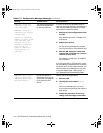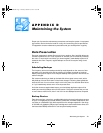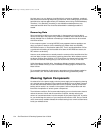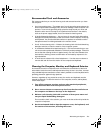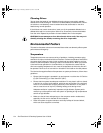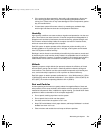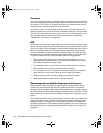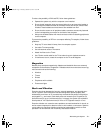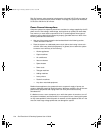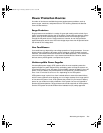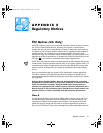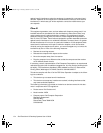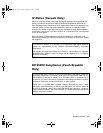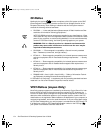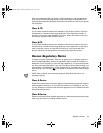
D-8
'HOO3UHFLVLRQ'HVNWRS6\VWHPV8VHU©V*XLGH
Each Dell system, when operating, is designed to withstand 0.25 G (half-sine wave) at
a sweep of 3 to 200 hertz (Hz) for 30 minutes. In storage, the system can withstand
0.5 G at 3 to 200 Hz for 30 minutes.
3RZHU6RXUFH,QWHUUXSWLRQV
Computer systems are especially sensitive to variations in voltage supplied by the AC
power source. Overvoltage, undervoltage, and transients (or
spikes
) can erase data
from memory or even cause components to fail. To protect against these types of
problems, power cables should always be properly grounded and one or both of the
following methods should be used:
Use one of the power protection devices described in the following section,
“Power Protection Devices.”
Place the system on a dedicated power circuit (rather than having it share a cir-
cuit with other heavy electrical equipment). In general, do not allow the system
to share a circuit with any of the following:
— Kitchen appliances
— Copier machines
— Air conditioners
— Vacuum cleaners
— Space heaters
— Power tools
— Teletype machines
— Adding machines
— Laser printers
— Facsimile machines
— Any other motorized equipment
Besides these appliances, the greatest threat to a system’s supply of power are
surges or blackouts caused by electrical storms. Whenever possible, turn off the com-
puter and any peripherals and unplug them from their power sources during
thunderstorms.
If a blackout occurs—even a temporary one—while the system is turned on, turn off
the system immediately and disconnect it from its power source. Leaving the system
on may cause problems when the power is restored; all other appliances left on in the
area can create large voltage spikes that can damage the system.
23186bk0.bk Page 8 Thursday, October 29, 1998 11:07 AM



